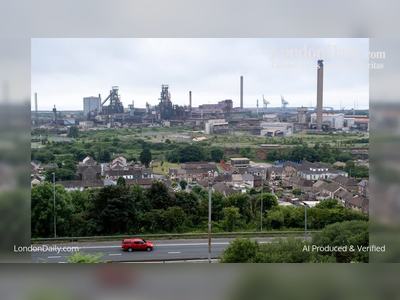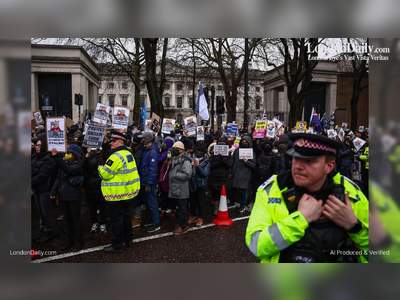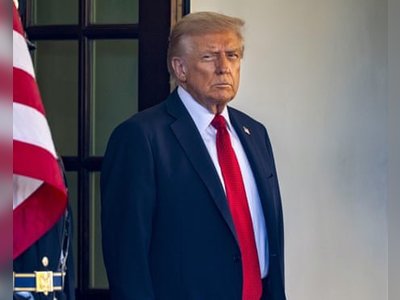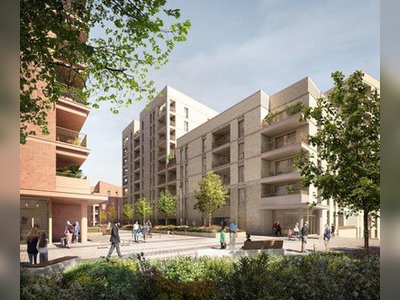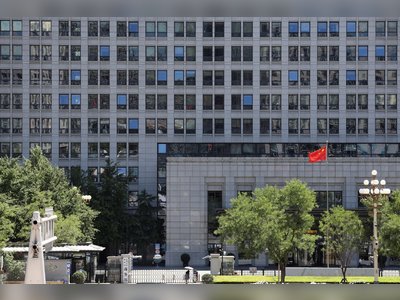At ninety-two and re-elected: Paul Biya secures eighth term in Cameroon amid unrest
Cameroon’s veteran leader declared winner with 53.66 % of vote as protests turn deadly and a challenged opposition questions the process
Cameroon’s long-time president, Paul Biya, has officially been declared the winner of the country’s presidential election and will remain in office for another seven-year term, the Constitutional Council announced on Monday.
The result grants the 92-year-old leader a further term that, if completed, would see him reach the age of 99 in office.
According to the official tally, Biya received 53.66 % of the vote while his main challenger, Issa Tchiroma Bakary, secured 35.19 %.
Tchiroma had earlier claimed victory himself, citing internal party counts, and urged Biya to concede.
The announcement follows days of mounting tension and clashes between security forces and protesters in several cities.
The election, held on 12 October, took place against the backdrop of deep-seated frustration among younger Cameroonians, more than 70 % of whom are aged under 35 and have grown up only ever knowing Biya as head of state.
The announcement of the result came after police said four people were killed in the commercial capital Douala during demonstrations and roadblocks ahead of the outcome.
Biya first assumed power in 1982 and has since overseen constitutional changes that removed presidential term limits in 2008. Over four decades in office have raised serious questions about the concentration of power and the state of political competition in the country.
His critics point to persistent economic challenges despite the nation’s oil wealth, including high youth unemployment and widespread informal employment, and to security crises in the north from Islamist insurgents and separatist conflict in the English-speaking regions.
Tchiroma’s campaign collected momentum by presenting him as a former insider turned reformer, but his claims of victory and the opposition’s demands for transparency were rejected by the ruling establishment.
The election period witnessed hundreds of arrests of opposition activists, the burning of a ruling party office and road blockades in key urban centres.
Authorities warned against the publication of fake results, and both local and international observers raised alarms about the credibility of the process, even as the African Union described the election as “largely conducted in accordance” with regional standards.
With the announcement now secured, observers caution that Biya’s mandate is weakened by widespread scepticism about its legitimacy.
The government has increased security deployments across major cities and urged calm, stating that those detained in recent days were plotting violent attacks.
Meanwhile, young Cameroonians who were hopeful for change voiced disappointment.
One 28-year-old hotel worker said: “Nothing will change…we are tired of it.”
As Biya begins his new term, the leadership’s challenge will be to address the deep generational rift in the country and restore a sense of hope among a populace that increasingly questions whether any change is possible within the existing political framework.
The result grants the 92-year-old leader a further term that, if completed, would see him reach the age of 99 in office.
According to the official tally, Biya received 53.66 % of the vote while his main challenger, Issa Tchiroma Bakary, secured 35.19 %.
Tchiroma had earlier claimed victory himself, citing internal party counts, and urged Biya to concede.
The announcement follows days of mounting tension and clashes between security forces and protesters in several cities.
The election, held on 12 October, took place against the backdrop of deep-seated frustration among younger Cameroonians, more than 70 % of whom are aged under 35 and have grown up only ever knowing Biya as head of state.
The announcement of the result came after police said four people were killed in the commercial capital Douala during demonstrations and roadblocks ahead of the outcome.
Biya first assumed power in 1982 and has since overseen constitutional changes that removed presidential term limits in 2008. Over four decades in office have raised serious questions about the concentration of power and the state of political competition in the country.
His critics point to persistent economic challenges despite the nation’s oil wealth, including high youth unemployment and widespread informal employment, and to security crises in the north from Islamist insurgents and separatist conflict in the English-speaking regions.
Tchiroma’s campaign collected momentum by presenting him as a former insider turned reformer, but his claims of victory and the opposition’s demands for transparency were rejected by the ruling establishment.
The election period witnessed hundreds of arrests of opposition activists, the burning of a ruling party office and road blockades in key urban centres.
Authorities warned against the publication of fake results, and both local and international observers raised alarms about the credibility of the process, even as the African Union described the election as “largely conducted in accordance” with regional standards.
With the announcement now secured, observers caution that Biya’s mandate is weakened by widespread scepticism about its legitimacy.
The government has increased security deployments across major cities and urged calm, stating that those detained in recent days were plotting violent attacks.
Meanwhile, young Cameroonians who were hopeful for change voiced disappointment.
One 28-year-old hotel worker said: “Nothing will change…we are tired of it.”
As Biya begins his new term, the leadership’s challenge will be to address the deep generational rift in the country and restore a sense of hope among a populace that increasingly questions whether any change is possible within the existing political framework.

